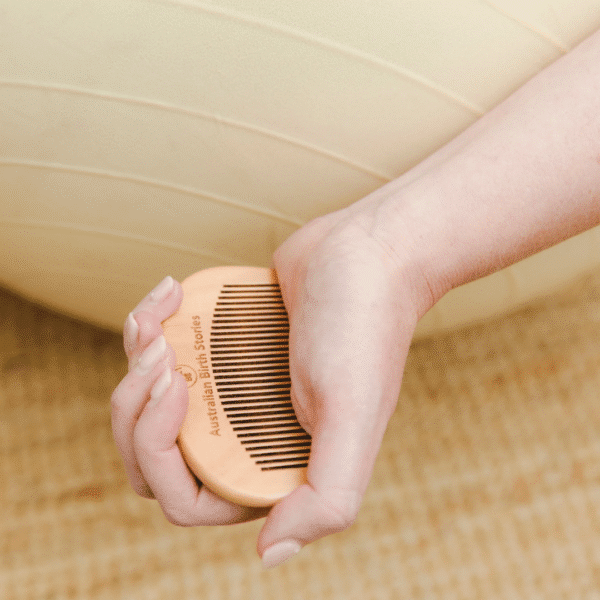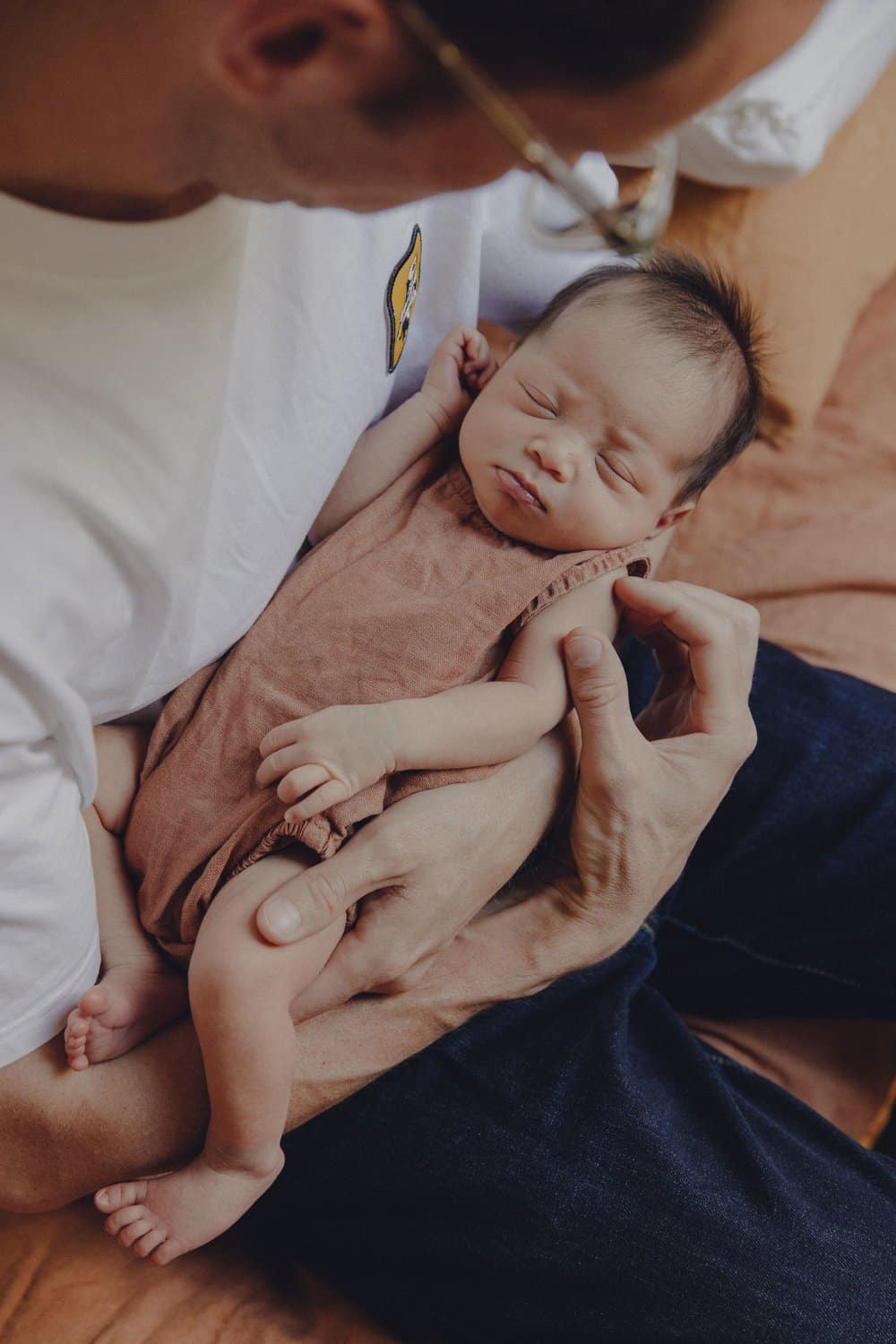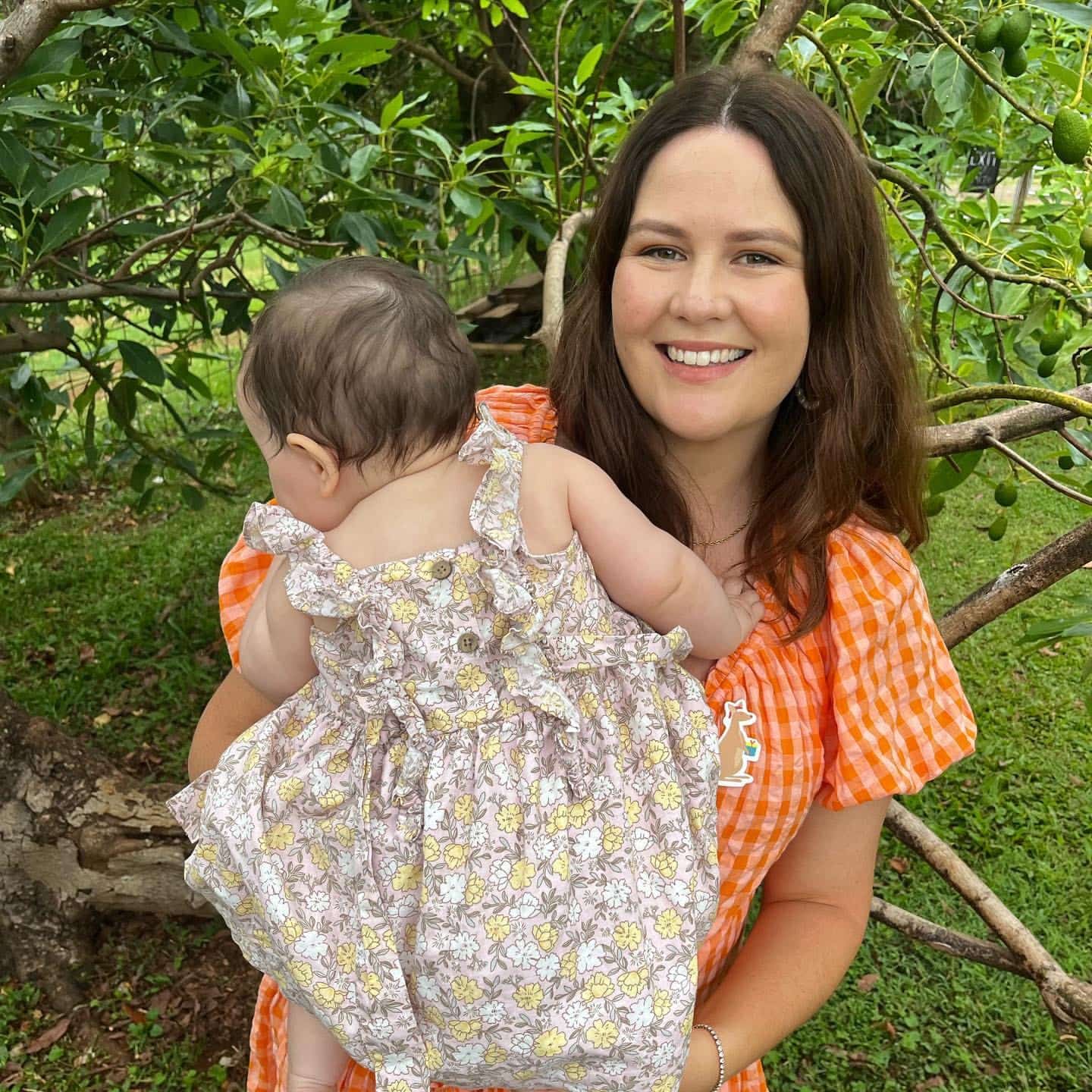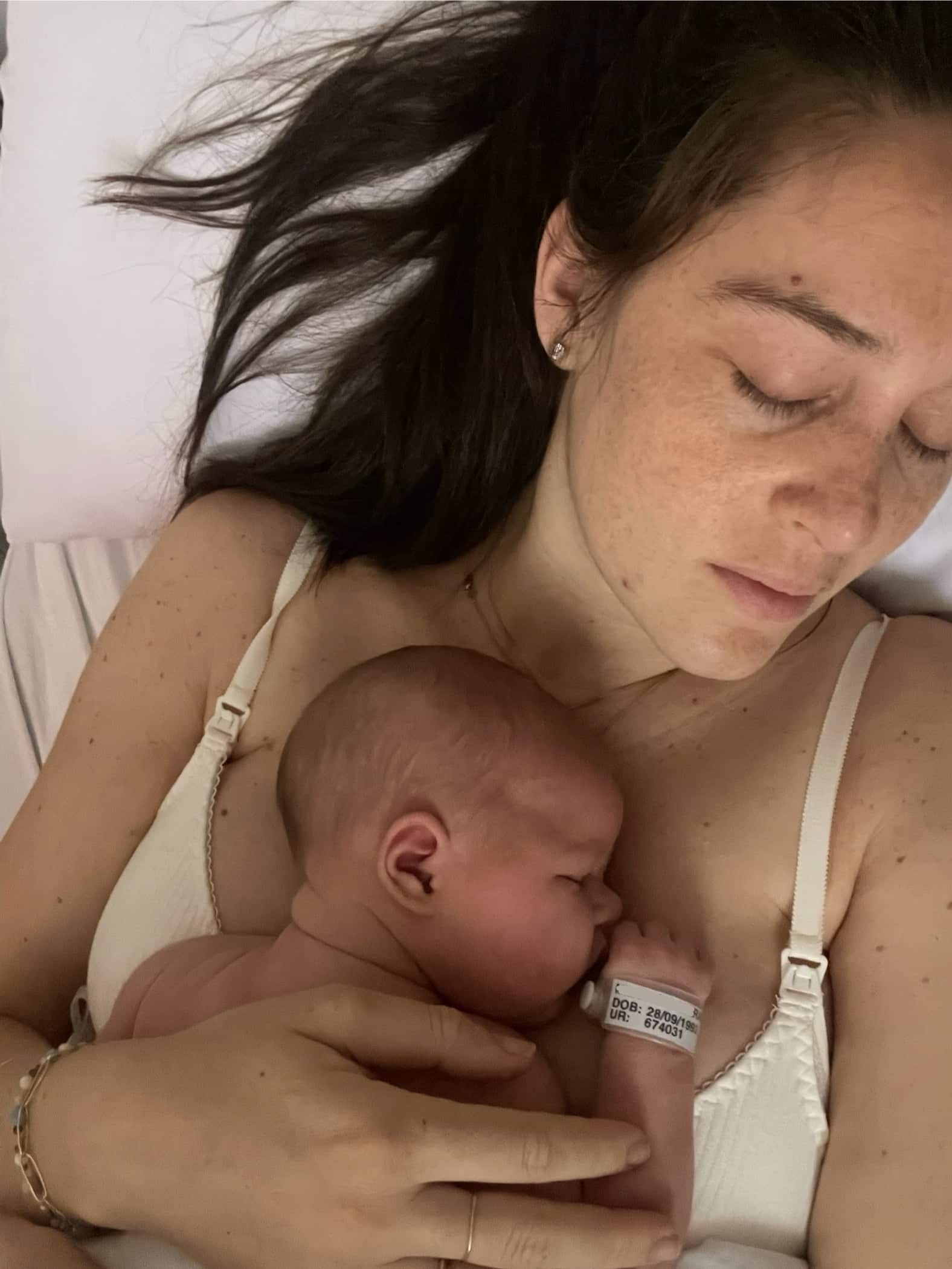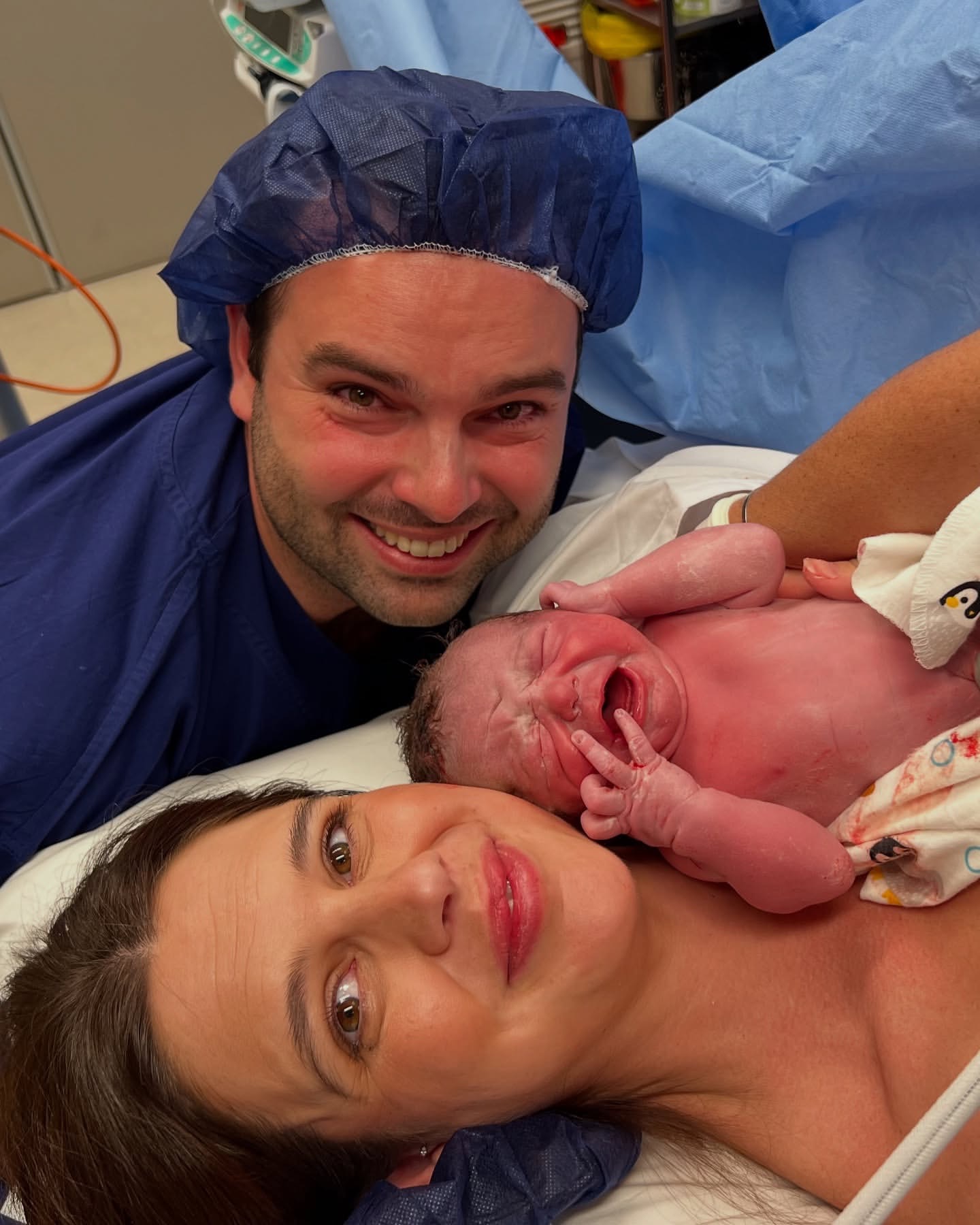Podcasts Ruby | Postpartum – breastfeeding, sleep challenges, normal infant biology, low sleep needs
EPISODE 481
Ruby | Postpartum – breastfeeding, sleep challenges, normal infant biology, low sleep needs
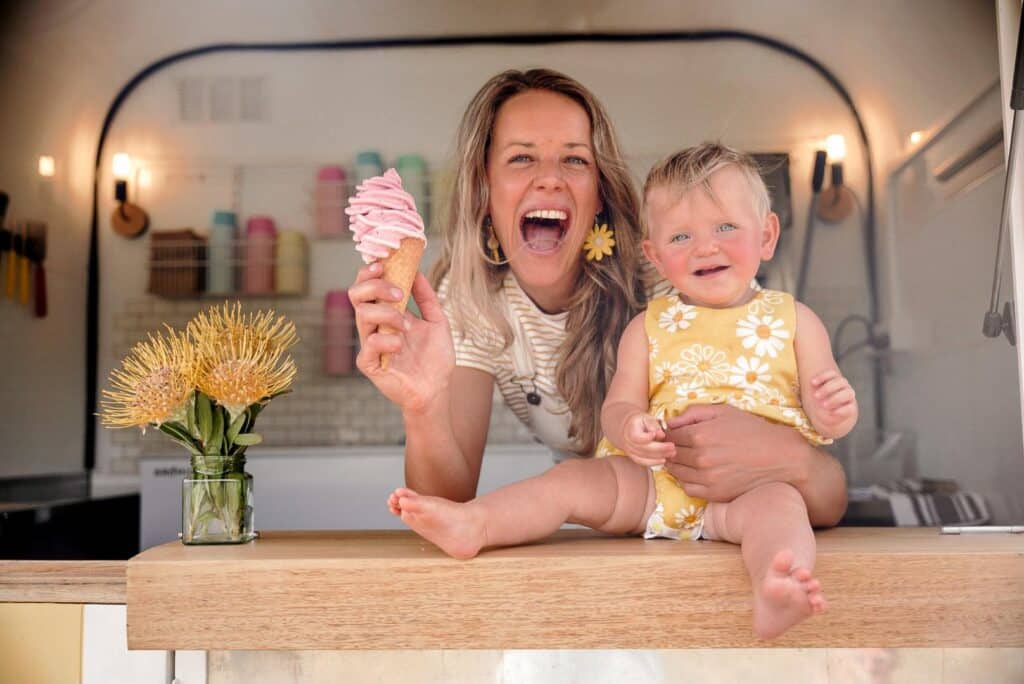
“Olive’s sleep challenges really began at four months which is a regression or a progression, however you want to look at it. Firstly it was nap refusal and she would cat nap for about thirty minutes which I accepted. She then started waking frequently overnight and that’s when I felt like I needed some professional guidance. I didn’t really know what I was doing but all my other friends had babies that were sleeping through the night or they’d reached out to sleep consultants and they swore by them; said it was the best thing they’d ever done. I wasn’t interested in sleep training her, I was interested in some tweaks for how we could do things a bit differently.
“I bought a basic package of a sleep consultant and I was shocked at how structured it was; I’m the least structured person, I knew I couldn’t run my life to this schedule. We certainly didn’t follow that advice so we kept going and Olive moved through that initial bumpy phase and things got a bit better. However, it became an issue when we were overseas and we were spending hours and hours overnight patting, shushing, rocking, walking and she was waking between six to ten times overnight and I was breastfeeding back to sleep.
“On the plane ride home I said to Alex that we needed to give something else a go. I started googling and it was like opening a can of worms. I had no idea who to go with but every website was full of amazing reviews from parents whose babies were sleeping through the night so I really did think it was guaranteed. I had week-long access to the sleep consultant and it involved following a very strict regime; from the beginning of the day we would fill in a timetable on a nap and detail Olive’s wake times, what she was eating, how often she was feeding, when she was sleeping, our settling techniques. By that point I was completely overwhelmed by how how strict it was; don’t breastfeed to sleep, don’t let her fall asleep on the boob, keep really strict wake windows and sleep times and make sure all her sleeps are at home but make sure you’ve still got a life so go out but make sure she doesn’t fall asleep in the car.
“The messages were so mixed and it felt counterintuitive to everything I had done in regards to feeding and sleep up to that point. I was a wreck; I was broken by the end of that experience. I was socially anxious, I felt like i couldn’t go out to see friends because they would inevitably ask: ‘how is your baby sleeping’ and I would just break down. I was broken, I really was.
“I had apps to measure her sleep time, her wake windows and it became an obsession that ruled my life. It was so anxiety-inducing. Considering our rough birth experience, attachment was my priority in everything I was doing. I was really trying to bond with her and formulate a secure attachment so when we had advice from a sleep consultant to shut the door, walk away and let her cry, it felt very counter-intuitive. I’d spent endless nights crying at the door and it just felt awful.
“I now know that sleep has so much to do with baby temperament. As much as it was really hard and hated every single second of it, it worked. This was the crazy thing; I was broken by the end of that week but Olive was only waking once or twice during the night. But as we all night, sleep is fluid and baby sleep changes all the time because they’re teething or they get sick and so sleep training isn’t a once-off; you have to keep implementing it. I knew I couldn’t go through it again; it didn’t sit right with us as a family.
“As Olive got older it was a lot harder for me to leave the room. She could scream out my name in the middle of the night which made it harder. We were in a pretty dark place around the 10 month mark and I was breaking down every day; my mental health was severely affected.
“I joined a postpartum support group and the leader mentioned Hannah from Kin Postpartum and my eyes went wide and I admitted that I just couldn’t go down that path again. But this woman reassured me that Hannah was different and I was ready to try something different. I went onto instagram and I instantly felt in tune with her because they contradict everything I learned about infant sleep and I just felt so validated. I had a big cry and knew then and there that I needed to engage her services.
“I reached out to her and of course it was very hard to get into her at first. I wrote a desperate email and told her I needed her yesterday and I saw her a few days later. She completely flipped everything I ever knew about baby sleep on its head. She advocated for attachment-focussed parenting, filling that connection bucket, she looked a lot at baby temperament and how it so strongly informs sleep and what Hannah did was look at Olive as a unique little human instead of a generic baby. She took into her account her personality, likes and dislikes and it was just amazing. She suggested lots of different things throughout the day and she didn’t make promises which was so lovely because she emphasised that it was a journey.
“Some of the biggest things we implemented was breastfeeding to sleep; she reiterated that babies have been feeding to sleep forever and it’s a tool for you to use throughout day and night. It’s something I’d been doing from the beginning but I’d been told to stop doing it by sleep consultants. We also used lots of sensory input before bed; lots of belly laughs, big movements, dancing, swinging, running around the house which was the complete opposite to the dark room, no eye contact of sleep training that required an hour-long settling period of winding down without stimulating them. Now our winding down period is ten minutes so it’s very contradictory to sleep training.
“Hannah nodded to the spectrum of sleep needs and I’ve learnt that Olive has low sleep needs; she doesn’t need a lot of sleep to function. She encouraged cutting naps so she was awake for longer to build sleep pressure. Before we saw Hannah she was waking every 45 minutes and then within a week of seeing Hannah we were seeing huge changes. The other thing we did was get a mattress for the floor so I’d spend a lot of time cuddling ehr before sleep and I’d go in at night to breastfeed her without having to move her.
“It felt so right, it really did. From a bonding perspective as well, I’ve felt that since we’ve started to implement these gentle strategies and gain awareness of Olive’s needs, my bond and attachment with her has shifted and I feel a lot more connected with her.
“I used to get so anxious about bedtime because it felt like a chore and I had a list of things to do; half-feeds, full feeds, full from dinner. Now we look forward to it; all three of us connect and it’s been such a shift and it works for us. Now we’ve just let go and relinquished control whereas sleep training was all about control and that doesn’t work with the swings and roundabouts of babies.”
Topics Discussed
Breastfeeding, low sleep needs, normal infant biology, sleep challenges
Episode Sponsor
If you’re considering The Birth Class, now is the time to buy. It just got bigger and better thanks to new content that enhances your birth education and preparation experience, including:
- A cheat sheet for your birth partner. This simple outline takes your support person through early and active labour – what to expect, how to support and what to say when challenges arise
- Images of birth positions – the ideal addition for visual learners 3 meditations to release tension, foster trust and navigate a change of plans.
- An illustrated guide to antenatal expressing – everything you need to know about collecting and storing colostrum.
Categories
Related Products
-
Birth Combs: Harness Your Body’s Natural Pain Relief
$24.95Crafted from smooth, natural wood, our birth combs activate specific pressure points in your hands that trigger your body’s innate pain-relieving responses.
Join the conversation
Sign up to get the latest updates, freebies, podcast releases straight into your inbox
@AustralianBirthStories
Follow along with us
@AustralianBirthStories
Follow along with us
@AustralianBirthStories
Follow along with us
@AustralianBirthStories
Follow along with us
@AustralianBirthStories
Follow along with us
@AustralianBirthStories
Follow along with us
@AustralianBirthStories
Follow along with us
@AustralianBirthStories
Follow along with us
@AustralianBirthStories
Follow along with us
@AustralianBirthStories
Follow along with us
@AustralianBirthStories
Follow along with us
@AustralianBirthStories
Follow along with us
